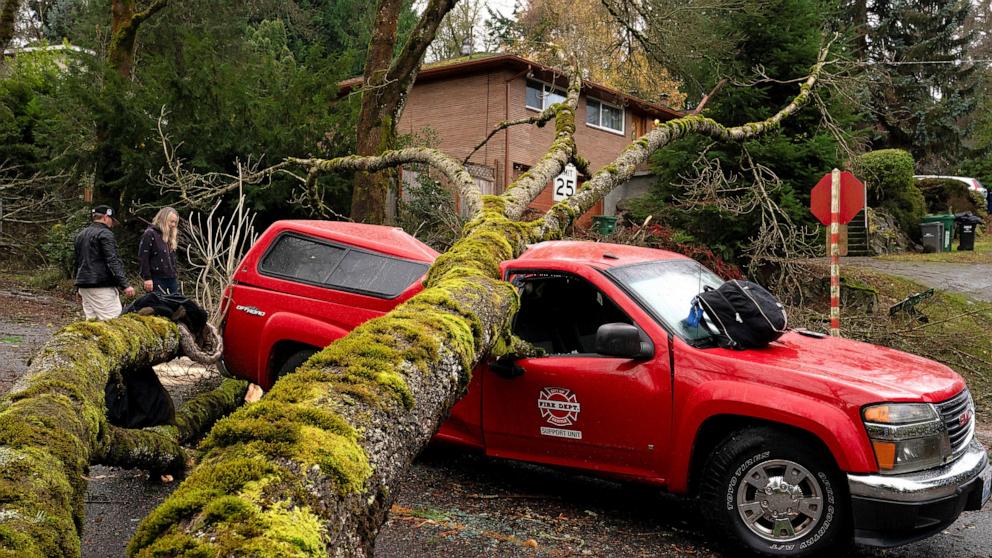2 dead in Washington state as bomb cyclone hammers West Coast

Two people were killed by falling trees in Washington state as a powerful storm hammered the Pacific Northwest.
In Bellevue, a tree fell into a home, hitting and killing a woman while she was in the shower Tuesday night, Bellevue fire officials said.
In Lynwood, a woman in her 50s was killed when a tree fell on a homeless encampment, officials said.
Hundreds of thousands of people lost power in the storm, which snapped power lines and caused significant damage. As of Wednesday evening, about 320,000 customers were still without power, according to Puget Sound Energy CEO Mary Kipp.
"We haven't had a storm like this since January of 2012," Kipp said in in a video on X.
Crews were prioritizing restoring power to hospitals and schools, and Kipp estimated power wouldn't be back for all customers "for at least a few days."
Another roughly 23,000 customers of Seattle City Light were still without power as of Wednesday evening, according to a post from the utility on social media platform X.
The storm exploded into a bomb cyclone off the coast, near Vancouver Island, Canada, where winds gusted near 101 mph.
A bomb cyclone means the pressure in the center of the storm drops 24 millibars within 24 hours.
The storm is bringing dangerous wind and rain to the West Coast.
Two to 4 inches of rain has been recorded so far in western Washington, western Oregon and northwestern California.
The rain started in northwestern California on Tuesday afternoon and it isn't expected to stop until Friday morning. Twelve to 18 inches of rainfall is expected by the end of the week.
A high risk for excessive rainfall has been issued. The rain will be the most dangerous on Thursday.
Flash flooding, rockslides and landslides are all likely.
In the mountains of Northern California, blizzard conditions will be possible as wind gusts reach 50 to 70 mph. One to 4 feet of snow is possible at higher elevations. One foot of snow has already hit the mountains west of Redding, California.
ABC News' Marilyn Heck contributed to this report.







